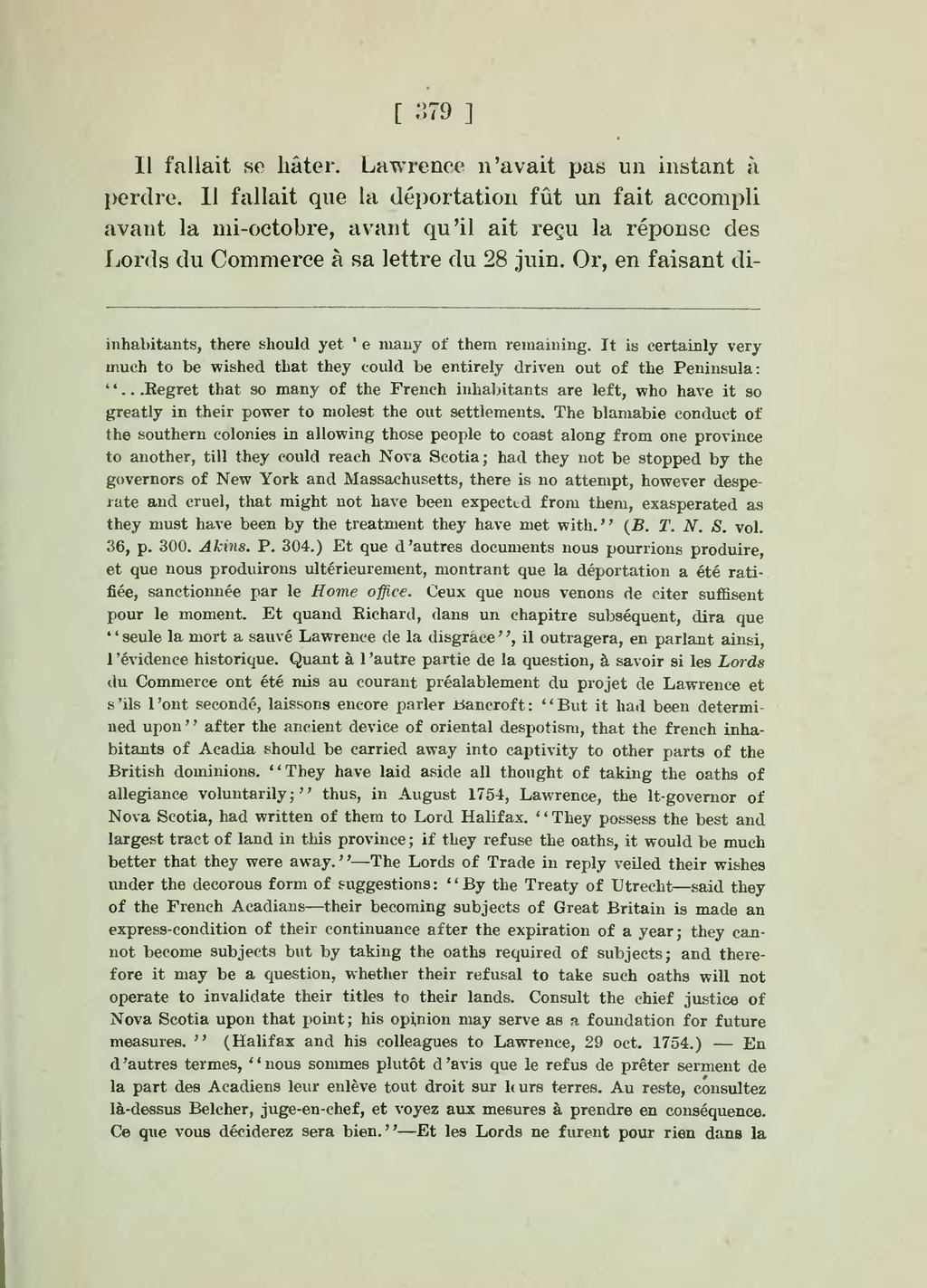Il fallait se hâter. Lawrence n’avait pas un instant à perdre. Il fallait que la déportation fût un fait accompli avant la mi-octobre, avant qu’il ait reçu la réponse des Lords du Commerce à sa lettre du 28 juin. Or, en faisant di-
inhabitants, there should yet be many of them remaining. It is certainly very much to be wished that they could be entirely driven out of the Peninsula : « …Regret that so many of the French inhabitants are left, who have it so greatly in their power to molest the out settlements. The blamable conduct of the southern colonies in allowing those people to coast along from one province to another, till they could reach Nova Scotia ; had they not be stopped by the governors of New York and Massachusetts, there is no attempt, however desperate and cruel, that might not have been expected from them, exasperated as they must have been by the treatment they have met with. » (B. T. N. S. vol. 36, p. 300. Akins. P. 304.) Et que d’autres documents nous pourrions produire et que nous produirons ultérieurement, montrant que la déportation a été ratifiée, sanctionnée par le Home office. Ceux que nous venons de citer suffisent pour le moment. Et quand Richard, dans un chapitre subséquent, dira que « seule la mort a sauvé Lawrence de la disgrâce », il outragera, en parlant ainsi, l’évidence historique. Quant à l’autre partie de la question, à savoir si les Lords du Commerce ont été mis au courant préalablement du projet de Lawrence et s’ils l’ont secondé, laissons encore parler Bancroft : « But it had been determined upon » after the ancient device of oriental despotism, that the french inhabitants of Acadia should be carried away into captivity to other parts of the British dominions. » They have laid aside all thought of taking the oaths of allegiance voluntarily ; » thus, in August 1754, Lawrence, the lt-governor of Nova Scotia, had written of them to Lord Halifax. « They possess the best and largest tract of land in this province ; if they refuse the oaths, it would be much better that they were away. » — The Lords of Trade in reply veiled their wishes under the decorous form of suggestions : « By the Treaty of Utrecht — said they of the French Acadians — their becoming subjects of Great Britain is made an express-condition of their continuance after the expiration of a year ; they cannot become subjects but by taking the oaths required of subjects ; and therefore it may be a question, whether their refusal to take such oaths will not operate to invalidate their titles to their lands. Consult the chief justice of Nova Scotia upon that point ; his opinion may serve as a foundation for future measures. » (Halifax and his coleagues to Lawrence, 29 oct. 1754.) — En d’autres termes, « nous sommes plutôt d’avis que le refus de prêter serment de la part des Acadiens leur enlève tout droit sur leurs terres. Au reste, consultez là-dessus Belcher, juge-en-chef, et voyez aux mesures à prendre en conséquence. Ce que vous déciderez sera bien. » — Et les Lords ne furent pour rien dans la
